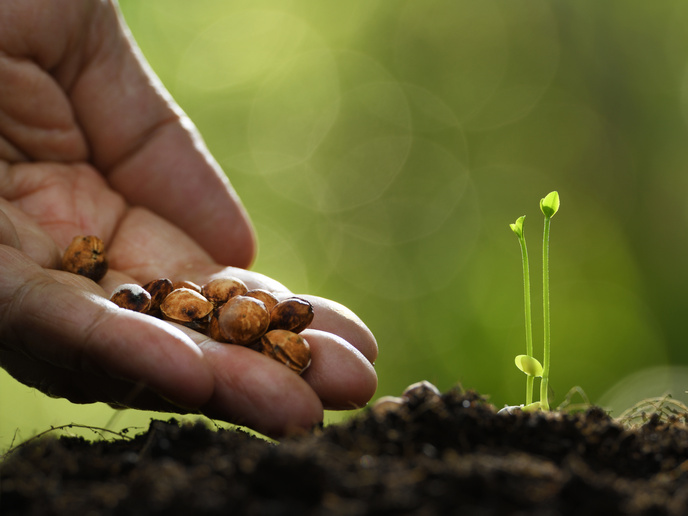Citizen scientists to the bean rescue
A citizen science experiment run by the EU-funded INCREASE project is inviting gardening devotees to take part in research on the common bean. Beans are just one of the legumes INCREASE has focused on since its launch in 2020. It has also been working to enhance the use and management of legume genetic resources. The ultimate goal is to boost Europe’s agri-food systems. The project team sends the seeds of different old and no longer common bean varieties to anyone interested in participating in the experiment. By growing these plants, the citizen scientists are helping INCREASE to gather key information about the varieties, with the aim of preserving them. What the researchers need to know is which bean varieties grow in which environments. Crucial factors such as local climate are taken into account, in addition to other aspects such as garden size. Plant growth is documented in the project’s citizen science app that also allows the amateur researchers to record data such as flowering time and seed size, and submit photos documenting plant traits. Key information provided by the aspiring gardeners includes the fact that the blossoming data of some bean varieties are heavily dependent on how long the days are. A recent news item reports that the experiment’s novice researchers have recently also recorded very precise weather data that will help to determine how temperature and precipitation affect plant growth.
Do not worry about the bean
Despite the extreme weather experienced in Europe since the project’s launch, Dr Neumann is not too concerned about the beans. “What is so great about the common bean is that it is so unbelievably flexible,” the scientist remarks. This flexibility is what makes it grow just as well in southern Europe as it does in the cooler north. The number of participants in the project has grown from 3 000 in the first year to more than 9 000 in 2024. “The project brings such a huge number of people together,” observes Dr Neumann. By exchanging information – and even recipes for bean dishes – with people in different countries across Europe, the citizen scientists are helping to keep alive bean varieties that might otherwise die out. Dr Neumann refers to these gardening enthusiasts as a “preservation community.” Over 1 300 people are reported to be permanently involved in this community. Earlier in the year, the project team launched the INCREASE Citizen Science Photo, Video & Recipe Contest 2024 that gives everyone taking part in the citizen science experiment the opportunity to share their experiences of the journey. Participants are invited to submit photos, videos and bean recipes. All contributions will be uploaded on the project’s social media channels towards the end of the year, to be voted on by the project’s followers.
Recognition
An INCREASE (Intelligent Collections of Food Legumes Genetic Resources for European Agrofood Systems) paper published in ‘The Plant Journal’ (TPJ) has received the SEB-Wiley-TPJ award for outstanding TPJ papers published in 2023 in the category Outstanding Student-authored Resource Article. Furthermore, the project’s overall efforts to expand knowledge and address environmental challenges through citizen involvement were also recently recognised. In September 2024, INCREASE was awarded the European Union Prize for Citizen Science 2024 at the Ars Electronica Festival held in Austria. For more information, please see: INCREASE project website
Keywords
INCREASE, bean, plant, gardening, citizen science, legume



